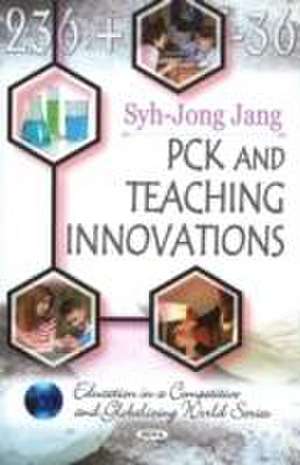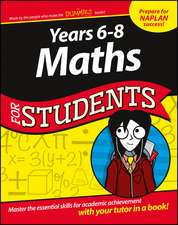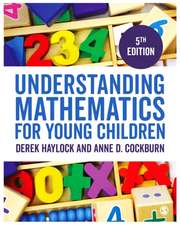PCK and Teaching Innovations
Autor Syh-Jong Jangen Limba Engleză Hardback – 4 ian 2010
Preț: 478.65 lei
Preț vechi: 651.40 lei
-27% Nou
Puncte Express: 718
Preț estimativ în valută:
91.63€ • 94.29$ • 77.24£
91.63€ • 94.29$ • 77.24£
Carte disponibilă
Livrare economică 08-22 februarie
Preluare comenzi: 021 569.72.76
Specificații
ISBN-13: 9781607411475
ISBN-10: 1607411474
Pagini: 147
Ilustrații: tables & charts
Dimensiuni: 187 x 265 x 15 mm
Greutate: 0.47 kg
Editura: Nova Science Publishers Inc
ISBN-10: 1607411474
Pagini: 147
Ilustrații: tables & charts
Dimensiuni: 187 x 265 x 15 mm
Greutate: 0.47 kg
Editura: Nova Science Publishers Inc
Cuprins
Preface:; Development of a research-based model for enhancing pedagogical content knowledge of pre-service & in-service science teachers; Development of a technology-based model for enhancing PCK of pre-service science teachers; Comparison between novice & experienced science teachers PCK about electric circuits through a peer coaching model; The impact of integrating peer coaching & team teaching upon secondary science teachers: A social constructivist approach; The effects of three-stage collaborative concept-mapping process in elementary school science classes; The social constructivist approach to learning & teaching mathematics: The impact on incorporating collaborative learning with team-teaching; The effects of integrating technology & collaborative learning in elementary mathematics classes; Index.





